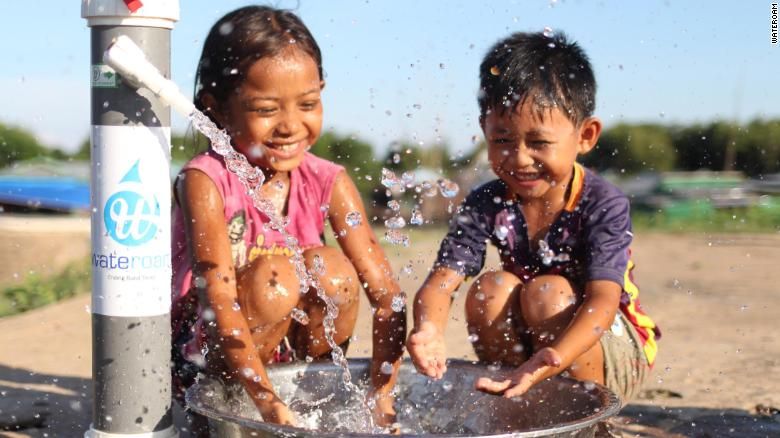Portable Water Filter Brings Clean Water to a Floating Village
Published on by Water Network Research, Official research team of The Water Network in Case Studies
In 2018, Wateroam had the opportunity to head down to Chhnok Tru floating village in Cambodia. The village has a total of over 1,700 households and is divided into 3 ethnic groups – Khmer, Cham and Vietnamese.

Images by Wateroam
Primarily, the locals of Chhnok Tru Village o btain their water supply from the Tonle Sap lake, which their village floats upon. However, the water has been polluted from municipal waste and public defecation.
Due to lack of education and waste infrastructure, locals dump their rubbish into their water source without much thought. Human waste is also directly deposited into the lake without any treatment.
The quality of the lake is worsened during dry seasons. Without a choice, the locals still have to rely on the contaminated lake water for laundry, dishes, bathing and even cooking.
There are several companies there that treat the lake water to produce and sell bottled potable water. However, the main issue we have identified is that not all locals can afford the potable water. As such, they have no choice but to resort to using the lake water for consumption.
This makes them prone to waterborne diseases and other health issues such as diarrhea, cholera, typhoid, dysentery, with many families tackling these issues throughout the year.
To tackle these challenges, Wateroam partnered with NUS Project OceaNUS and students from the Paññāsāstra University of Cambodia (PUC) and Souperstar to provide the villagers with access to clean drinking water.
Through their combined efforts, NUS Project OceaNUS’18 was able to raise funds for 4 ROAMfilter™ Plus systems while SOUPERSTAR sponsored 2 more systems through their SOUPEROAMERS Programme, providing more than 600 people in the village with safe drinking water!
Apart from providing safe drinking water, the focus on hygiene education is also a big part of Project OceaNUS. With the help of the student volunteers from PUC, Project OceaNUS’18 introduced the Water, Sanitation and Hygiene Education (WASH) programme in 3 different schools to educate students on environmental awareness, the importance of clean water and proper sanitation.
The 3 ROAMfilter™ Plus systems were allocated in different schools so that the students can get clean drinking water easily and reduce the cases of waterborne diseases. With clean water and better health, students are able to focus better in school.
The 2 ROAMfilter™ Plus systems were deployed in the floating village to provide clean drinking water to the community. Life, living and livelihood of every individual in the village will be improved through clean water access.
Healthcare services in rural health centres are often limited by their lack of clean water. Without clean water, the recovery process of patients is hindered by poor sanitation and treatment options. Therefore, 1 ROAMfilter™ Plus was allocated at the healthcare center. By supplying clean water to rural health centres, healthcare workers now are able to provide safe, quality treatment and ensure the smooth recovery of their patients.
Demonstrations, education workshops, and maintenance training were carried out with the local community to ensure the long-term sustainability of the project. Thus, with proper operation and maintenance of ROAMfilter™ Plus, they can produce clean drinking water to the community for more than 2 years.

The sketch shows the future plan of using the water collected in the water storage tank and connect it to ROAMfilter™ Plus to filter the contaminated water to potable water for drinking.
Through the collaboration between Wateroam, Project OceaNUS, PUC and Souperstar, we have successfully impacted approximately 600 people across the village.
While we were able to provide these communities with safe drinking water, there are still many difficulties that we are working to overcome. For one, maintaining long term contact with the villagers can be challenging as some of these communities are nomadic in nature.
This learning journey has taught us the importance of partnership and collaboration. It was truly a unique and humbling experience for us as it allow us to reflect on why our crusade to end prolonged thirst started.
The article was originally published on Wateroam's blog.
Media
Taxonomy
- Public Health
- Purification
- Portable
- Filtration
- Filters
- Filtration
- Human Rights
- Water & Sanitation
- Sanitation & Hygiene
- Water Supply
- Sanitation & Hygiene
- Rural Area Water Supply